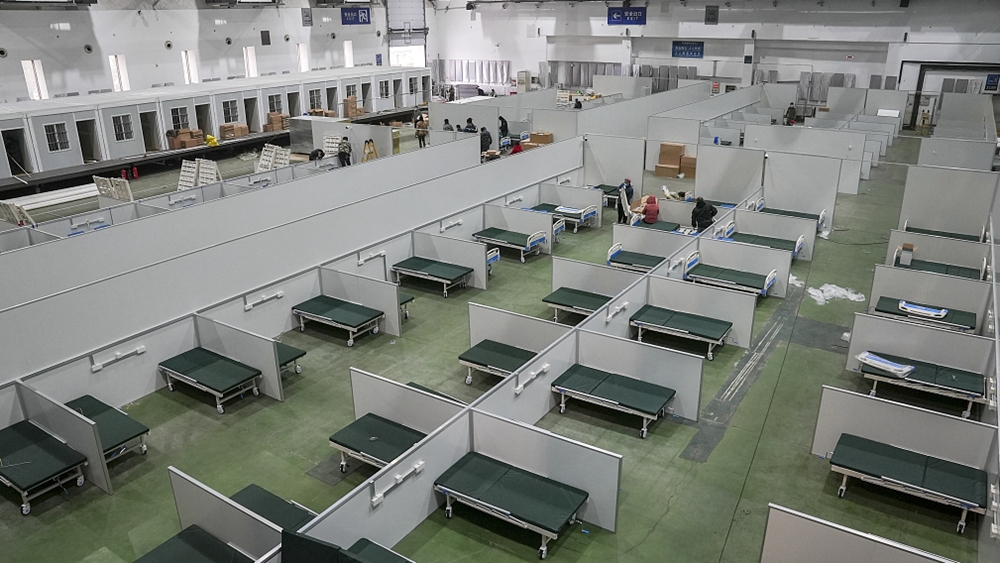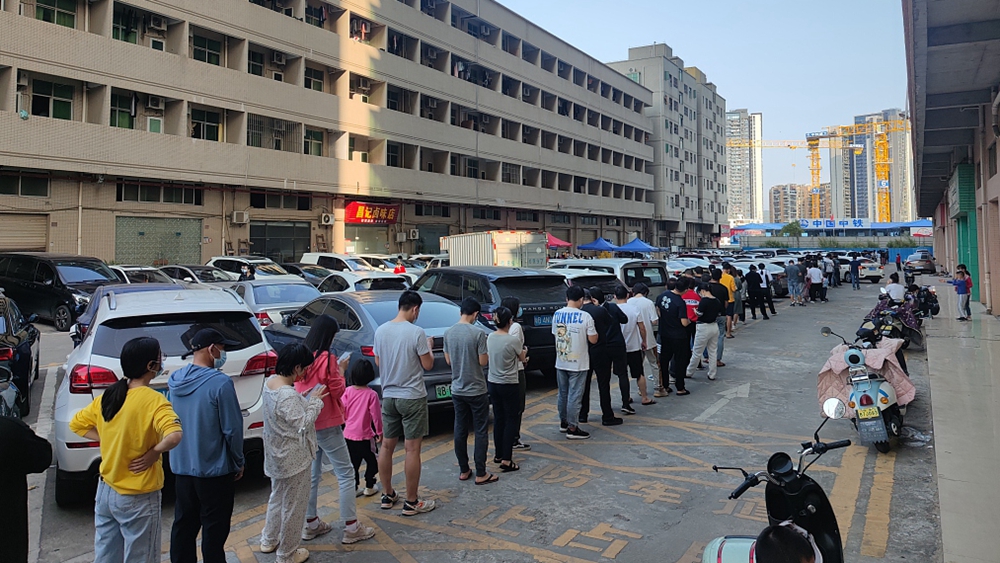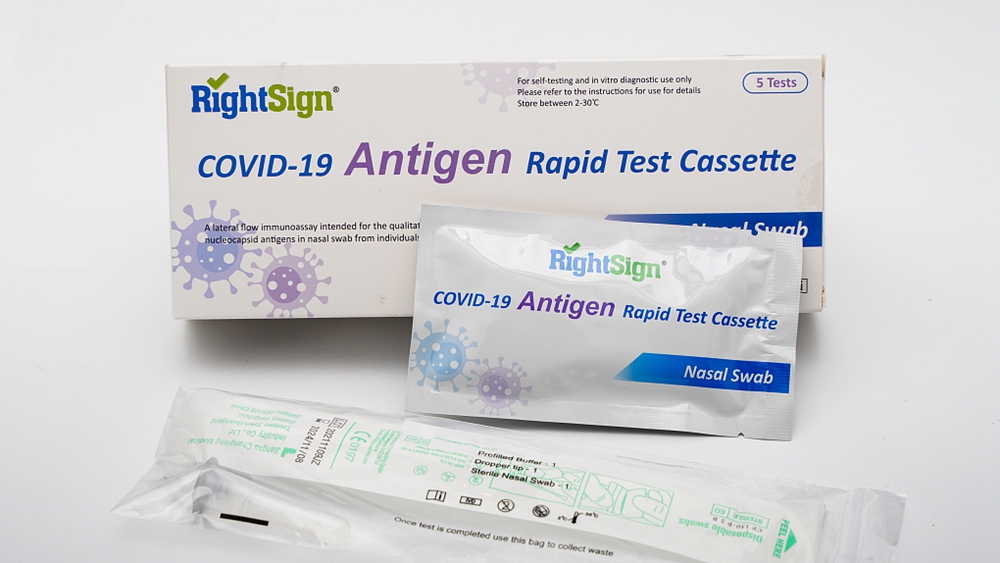
A view of beds at a temporary hospital in Changchun International Exhibition Center, Changchun City, northeast China's Jilin Province, March 12, 2022. /CFP
A view of beds at a temporary hospital in Changchun International Exhibition Center, Changchun City, northeast China's Jilin Province, March 12, 2022. /CFP
The Chinese mainland is making an all-out effort to contain recent sporadic clusters of COVID-19 across the country.
On Sunday, the mainland reported 1,337 locally transmitted COVID-19 cases and 906 new asymptomatic infections in multiple provinces and regions. Both were lower than Saturday's 1,807 symptomatic and 1,315 asymptomatic cases.
A total of 895 new cases were confirmed in northeast China's Jilin Province, along with 131 asymptomatic infections.
Shandong, Guangdong, Shaanxi and Hebei provinces also reported multiple cases along with Shanghai, Beijing and Tianjin.
To help control the spread of the COVID-19 in Jilin Province, several cities, including Changchun and Jilin, asked residents to stay at home for anything other than essential activities. They are also accelerating citywide nucleic acid tests to get a clear understanding of the pandemic situation as soon as possible.
A makeshift COVID-19 hospital in Changchun International Exhibition Center is ready to be put into use. With more than 1,000 beds, the hospital will mainly accept and treat mild and asymptomatic patients.
Vice Premier Sun Chunlan, who arrived in the province on Sunday, urged local authorities to take the "most thorough" epidemic response measures to stem the COVID-19 outbreaks.

Residents queue to take nucleic acid tests in Shenzhen City, south China's Guangdong Province, March 13, 2022. /CFP
Residents queue to take nucleic acid tests in Shenzhen City, south China's Guangdong Province, March 13, 2022. /CFP
Inspecting a virus-hit middle school and residential community in Changchun, Sun urged utmost efforts in testing, quarantine and treatment to stamp out all community infections as soon as possible.
Noting the complex COVID-19 situation in Jilin, Sun stressed accelerating screening for infecting, as the province is in a critical period.
All prevention and control measures should be strictly implemented in schools, nursing homes for the elderly, factories, enterprises and other key locations to prevent cluster resurgence, she said.
Shenzhen City in south China's Guangdong Province reported 75 cases on Sunday, the second-highest countrywide after Jilin Province.
To curb the spread of COVID-19, the southern Chinese city tightened control measures. Starting Monday, the city is set to put all residential communities, urban villages and industrial parks under closed-loop management until March 20. It will also begin three rounds of citywide nucleic acid testing during the period.
Services needed to keep the city and ports running will continue, but all public transportation will be closed down during the period.

COVID-19 antigen kits on display in Hangzhou City, east China's Zhejiang Province, March 13, 2022. /CFP
COVID-19 antigen kits on display in Hangzhou City, east China's Zhejiang Province, March 13, 2022. /CFP
While sticking to the dynamic zero-COVID strategy, China has approved five COVID-19 antigen kits made by local companies to be used for self-testing.
"Antigen is like the 'clothes' of the virus, while nucleic acid is the gene of the virus," Zhang Wenhong, a Shanghai-based top infectious disease expert, said in an interview.
Noting that an antigen test cannot detect the low amount of virus in the early stage of infection, Zhang said antigen tests can still be very valuable because potential patients can be quickly and easily detected on their own.
Zhang said multiple rapid-test methods will help China detect COVID-19 cases in time if China plans to loosen travel restrictions.
(With input from Xinhua)

